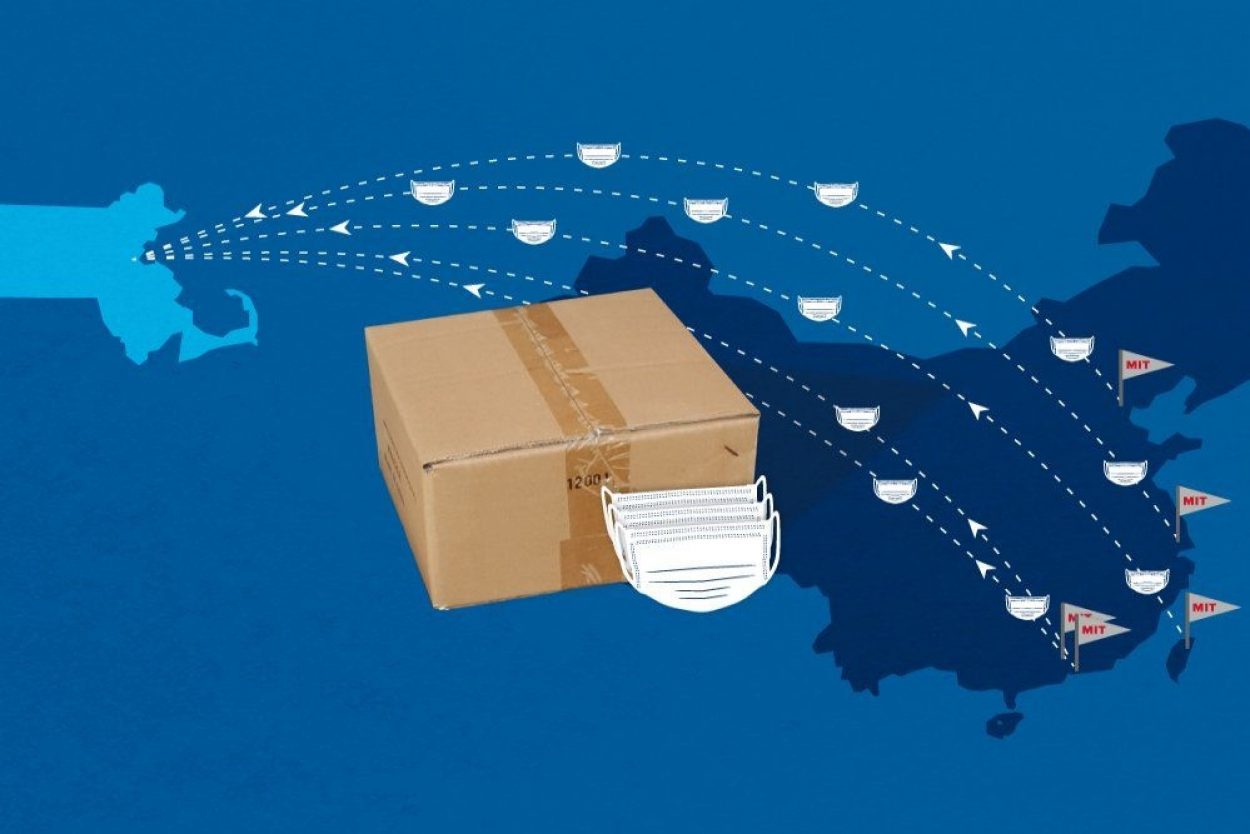When coronavirus cases in Massachusetts began to increase in early March, the MIT community sprang into action. By late March, more than 50 MIT departments, labs, and centers had donated extra, unopened personal protective equipment (PPE) to support area hospitals and frontline health-care workers in need. An MIT Medical outreach team — led by Elazer R. Edelman, director of the Institute for Medical Engineering and Science — was established for distribution of PPE to local hospitals.
MIT alumni from around the world also quickly responded to the call. Those in Greater China, in particular, had firsthand insight into what was needed to stop the spread and were eager to help. In less than six weeks, a donation drive in that region yielded 15,000 N95 respirator masks and 1,000 medical gowns for use in Massachusetts hospitals.
“We had just gone through Covid-19 and we saw how tough it was, but we came out all right,” says Ken Yeung ’88, SM ’89, past president of the MIT Club of Hong Kong and an MIT Alumni Association (MITAA) board member. “We understood how devastating it could be if you are not well-prepared.”
At first, separate efforts to collect PPE for Massachusetts began to develop among the membership of the alumni clubs of Hong Kong, Shanghai, Beijing, Shenzhen, and Taiwan. But as the club leaders began to connect with one another and realize the widespread interest in helping MIT and its surrounding community, they decided to join forces.
“As alumni and as global citizens, we all saw the acute need to help the MIT community and the Greater Boston community face the coronavirus crisis,” explains Elaine Wong ’97, past president of the MIT Club of Beijing and a past MITAA board member. “I had personally been helping a few friends who are frontline health-care workers in the Boston area with small PPE donations. I knew that with the resources, network, and generosity of the MIT alumni across the entire Greater China region we could do so much more.”
The clubs organized their efforts, creating a task force of nearly 40 alumni and dividing the volunteers among fundraising, communications, and sourcing/logistics. “There are challenges and concerns related to PPE product certification as it impacts not only product standards but whether we can receive FDA-regulated items as an import,” notes Christina Lo, director of strategic sourcing and contracts in MIT’s Office of the Vice President for Finance, who helped to coordinate the effort from the Institute side. John Tan ’93, a Shanghai-based lawyer well-versed in the landscape of Chinese manufacturing, “was involved to help us assess the manufacturers and certifications, and was a huge help,” she says.
Lo praises the time and effort put forth by the entire task force — which also included sourcing and logistics team leader and director of the MIT Club of Beijing Jin Yi PhD ’04 and MIT Club of Shanghai board member Steven Zhao MBA ’09 (whose 11-year-old daughter was interviewed by MIT for her poster publicizing these efforts). “They were so generous with their time and their care for the community here at MIT. They were willing to help us understand the supply-chain dynamics and work with the alumni network to solicit input from other caring alumni to help donate or provide resources for potential PPE.”
Through outreach to all alumni in the region — spearheaded by marketing team leader Rita Chao MBA ’11, regional ambassador for Shenzhen — around $100,000 was raised to purchase and ship PPE to MIT, with an additional $17,000 donated to one of the MIT Covid-19 funds. Club members also used their expertise to provide MIT and local hospitals with a list of qualified PPE vendors for additional procurement.
While the Greater China alumni clubs have a tradition of working together — given that many alumni in the region are frequent travelers who may belong to multiple clubs — the PPE project represented a new level of collaboration. “I was proud to see the work of the MIT communities across Greater China come together,” says Samuel Ngai SM ’02, PhD ’05, president of the MIT Club of Shanghai and a member of the fundraising team. “We were fortunate to have received our education and training at MIT. We still have friends, families, and colleagues at MIT and the Greater Boston area — some of them are even on the front lines at hospitals. Although we were thousands of miles away, it felt very close to home. With ‘mens et manus’ in mind, we quickly came up with a viable plan. From the organizers to the donors, everyone was so willing to help.”
